Discover Decouple
Decouple

Decouple
Author: Dr. Chris Keefer
Subscribed: 361Played: 25,623Subscribe
Share
© Dr. Chris Keefer
Description
There are technologies that decouple human well-being from its ecological impacts. There are politics that enable these technologies. Join me as I interview world experts to uncover hope in this time of planetary crisis.
309 Episodes
Reverse
In late October, amid the choreography of President Trump’s visit to Tokyo, two vast and curiously intertwined announcements were made: an $80 billion strategic partnership between the U.S. government and Westinghouse Electric Company, and a $550 billion investment framework between the United States and Japan.This episode of Decouple, hosted by AJ Camacho of Politico and E&E News, brought together Michael Seely, Yuri Humber and Chris Keefer this time in the guest seat to discuss the implications of this deal for the United States, Japan and Canada. Listen to Decouple on:• Spotify: https://open.spotify.com/show/6PNr3ml8nEQotWWavE9kQz• Apple Podcasts: https://podcasts.apple.com/us/podcast/decouple/id1516526694?uo=4• Overcast: https://overcast.fm/itunes1516526694/decouple• Pocket Casts: https://pca.st/ehbfrn44• RSS: https://anchor.fm/s/23775178/podcast/rssWebsite: https://www.decouple.media
In this special episode of Decouple, Chris Keefer speaks with Ken Petrunik, one of the few leaders in the Western nuclear industry who has taken large reactors from first concrete to operation under budget and ahead of schedule. Petrunik’s career spans Canada’s nuclear golden age and its export era, with senior roles in Romania, Argentina, and China, including leading the Qinshan Phase III CANDU reactors, delivered ahead of schedule and under budget under a fixed price engineering, procurement, and construction contract. The conversation traces how Canada once built nuclear plants at scale and how that environment shaped project managers capable of carrying real responsibility.We deep dive how nuclear projects are actually delivered, including construction sequencing, labor productivity, schedule control, and on site authority. Petrunik recounts moments when projects nearly failed and explains how early decisions and transparent coordination allowed recovery before delays became irreversible. The episode also examines what was lost as Canada’s build capability faded and what today’s nuclear programs can still learn from the people who led projects when reactors were routinely built.Listen to Decouple on:• Spotify: https://open.spotify.com/show/6PNr3ml8nEQotWWavE9kQz• Apple Podcasts: https://podcasts.apple.com/us/podcast/decouple/id1516526694?uo=4• Overcast: https://overcast.fm/itunes1516526694/decouple• Pocket Casts: https://pca.st/ehbfrn44• RSS: https://anchor.fm/s/23775178/podcast/rssWebsite: https://www.decouple.media
In this episode of Decouple we deep dive the European Pressurised Reactor and what its troubled construction history reveals about the real constraints on nuclear build out in the modern West. The conversation traces how a design intended to satisfy every regulator through a design philosophy of extreme redundancy and conservative safety margins instead exposed the limits of Western construction capacity, supply chain readiness, and project management culture. The episode also places the EPR in context alongside other large reactor designs, including AP1000 and APR 1400, highlighting how different philosophies around active redundancy, passive safety, modularity, and operational flexibility shape construction risk and cost. We explore why Germany and Korea were able to execute reactors with highly redundant active safety systems successfully when industrial capacity was warm, and why the EPR pushed that same philosophy beyond the point of diminishing returns. Listen to Decouple on:• Spotify: https://open.spotify.com/show/6PNr3ml8nEQotWWavE9kQz• Apple Podcasts: https://podcasts.apple.com/us/podcast/decouple/id1516526694?uo=4• Overcast: https://overcast.fm/itunes1516526694/decouple• Pocket Casts: https://pca.st/ehbfrn44• RSS: https://anchor.fm/s/23775178/podcast/rssWebsite: https://www.decouple.media
Why have we built nuclear ships before, proven they can operate, and still not made them commonplace? Nick Touran breaks down the history of maritime nuclear power, from the Nuclear Ship Savannah and Otto Hahn to Japan’s Mutsu and Russia’s Sevmorput, then pivots to floating nuclear power concepts such as the MH 1A Sturgis and the Offshore Power Systems program. We explore what worked, what failed, and what keeps blocking adoption, including port access rules, indemnity and international agreements, staffing costs, containerization economics, shielding and public reaction, and the unique operational demands of running reactors at sea.Listen to Decouple on:• Spotify: https://open.spotify.com/show/6PNr3ml8nEQotWWavE9kQz• Apple Podcasts: https://podcasts.apple.com/us/podcast/decouple/id1516526694?uo=4• Overcast: https://overcast.fm/itunes1516526694/decouple• Pocket Casts: https://pca.st/ehbfrn44• RSS: https://anchor.fm/s/23775178/podcast/rssWebsite: https://www.decouple.media
In this episode of Decouple, Dr. Jeff Waksman, Principal Deputy Assistant Secretary of the Army for Installations, Energy and Environment, explains how the U.S. Army is making a second attempt at making microreactors great again. The discussion situates the Janus microreactor program in the long history of the Army Nuclear Power Program and Project Pele, highlighting why earlier small reactor deployments failed to compete with diesel and grid power even in extreme environments, and why Janus represents a fundamentally different approach.Janus is best understood as an attempt to apply the Commercial Orbital Transportation Services model to nuclear energy, using milestone-based funding, hard downselects, and vendor replaceability to subsidize learning rather than electricity sales. The conversation explores the severe economic constraints facing one to ten megawatt reactors, the limits of the SpaceX analogy, and the unglamorous but decisive challenges of fuel logistics, waste removal, and slow nuclear learning cycles that will ultimately determine whether microreactors can ever move beyond demonstration and into durable military let alone commercial service.Listen to Decouple on:• Spotify: https://open.spotify.com/show/6PNr3ml8nEQotWWavE9kQz• Apple Podcasts: https://podcasts.apple.com/us/podcast/decouple/id1516526694?uo=4• Overcast: https://overcast.fm/itunes1516526694/decouple• Pocket Casts: https://pca.st/ehbfrn44• RSS: https://anchor.fm/s/23775178/podcast/rssWebsite: https://www.decouple.media
The first U.S. nuclear renaissance collapsed under the weight of cheap shale gas, lost institutional expertise, and disastrous projects like Vogtle and Summer. Today, America is planning a fleet of eight AP1000 reactors, backed by unprecedented federal incentives. But can the country actually build large nuclear again?In this video, we break down what really killed the 2000s revival, why Fukushima wasn’t the turning point, and how AP1000 and ESBWR passive safety performed in station-blackout analyses. Most importantly, we explore why nuclear success depends not on reactor design, but on rebuilding the developer organizations needed to execute these megaprojects.If the United States can rebuild those institutions, a real nuclear comeback is possible. If not, history risks repeating itself.Listen to Decouple on:• Spotify: https://open.spotify.com/show/6PNr3ml8nEQotWWavE9kQz• Apple Podcasts: https://podcasts.apple.com/us/podcast/decouple/id1516526694?uo=4• Overcast: https://overcast.fm/itunes1516526694/decouple• Pocket Casts: https://pca.st/ehbfrn44• RSS: https://anchor.fm/s/23775178/podcast/rssWebsite: https://www.decouple.media
Saudi Arabia burns nearly one million barrels of oil per day to keep its lights on, yet it has cheaper and faster ways to replace this than by building large nuclear reactors. So why is the Kingdom pushing so hard for a civil nuclear deal? This episode walks through the strategic logic that has animated Riyadh’s nuclear ambitions for more than a decade. The answer lies in prestige, industrial capacity, and the latent fuel cycle capabilities that come with a power reactor programme, all set against the backdrop of regional tension with Iran.We look closely at the recent Washington announcement that United States Saudi 123 talks have been “concluded,” the unresolved fight over enrichment rights, and the geopolitical pressure being applied to South Korea to align its nuclear exports with American interests. From the legacy of the Quincy pact to the rivalry between Westinghouse and KEPCO, this conversation unpacks how a simple reactor tender has become one of the most consequential energy and security decisions in the Gulf.Listen to Decouple on:• Spotify: https://open.spotify.com/show/6PNr3ml8nEQotWWavE9kQz• Apple Podcasts: https://podcasts.apple.com/us/podcast/decouple/id1516526694?uo=4• Overcast: https://overcast.fm/itunes1516526694/decouple• Pocket Casts: https://pca.st/ehbfrn44• RSS: https://anchor.fm/s/23775178/podcast/rssWebsite: https://www.decouple.media
In this episode, Chris Keefer speaks with Hadron Energy founder Samuel Gibson, the twenty four year old entrepreneur pursuing a ten megawatt integral pressurized water microreactor through a one point two billion dollar business combination with GigCapital7. Gibson outlines why he believes light water is the fastest licensing path, how he assembled a veteran nuclear team, and why Hadron shifted from a one megawatt concept to a ten megawatt design built around LEU plus fuel, modular plant layouts, and air cooled decay heat removal. Keefer presses on the harder questions: whether factory fabrication can overcome the fixed civil works and regulatory burdens that have crippled previous SMR efforts like NuScale and mPower, what off the shelf really means in a hollowed out US supply chain, and how long refueling cycles, fuel qualification, and decommissioning challenges scale at microreactor size. The conversation becomes a broader test case for whether startup optimism can meaningfully confront the industrial, economic, and physics grounded constraints that define real world nuclear deployment.Listen to Decouple on:• Spotify: https://open.spotify.com/show/6PNr3ml8nEQotWWavE9kQz• Apple Podcasts: https://podcasts.apple.com/us/podcast/decouple/id1516526694?uo=4• Overcast: https://overcast.fm/itunes1516526694/decouple• Pocket Casts: https://pca.st/ehbfrn44• RSS: https://anchor.fm/s/23775178/podcast/rss
This week on Decouple, I sit down with Aleksey Rezvoi, a veteran maritime nuclear engineer who began his career in the Soviet Union designing third- and fourth-generation submarine and icebreaker reactors before later working in the U.S. nuclear sector.We explore the hidden history and living reality of Russia’s civilian nuclear fleet—a line that began with the icebreaker Lenin in 1959 and continues today with the RITM-200, the world’s only serially produced small modular reactor.From Arctic logistics and reactor design philosophy to advanced fuels and industrial ecosystems, Rezvoi offers a rare insider’s view of what the West misses when it talks about “maritime nuclear.”
This week I sit back down with François Morin in his third appearance on the show. François is the World Nuclear Association’s point person on China. He works and travels inside China, speaks fluent Mandarin, and spends time at the conventional and advanced reactor sites that the rest of us argue about on Twitter. We cover how quickly China is really building nuclear power compared to the heyday of the French Mesmer plan, how that compares to Chinese coal and gas deployment, why Chinese nuclear is still mostly coastal, and the use case, build times and performance of the so-called “advanced reactors” that China is operating while Western startups are still in the powerpoint phase pitching to investors.Watch the full conversation on YouTube.Listen to Decouple on:• Spotify: https://open.spotify.com/show/6PNr3ml8nEQotWWavE9kQz • Apple Podcasts: https://podcasts.apple.com/us/podcast/decouple/id1516526694?uo=4 • Overcast: https://overcast.fm/itunes1516526694/decouple • Pocket Casts: https://pca.st/ehbfrn44 • RSS: https://anchor.fm/s/23775178/podcast/rss Website: https://www.decouple.media
This week on Decouple, I sit down with Dan Wang, a research fellow at Stanford’s Hoover History Lab and author of "Breakneck: China’s Quest to Engineer the Future." We trace how China became an “engineering state” while America turned into a “lawyerly society,” and what that means for infrastructure, energy, industry, birthrates, social security, and human lives. From Guizhou’s skyways to Jane Jacobs’ shadow over North American cities, Wang shows the upside of abundant state capacity and the dark side of excessive control.Buy Breakneck: https://danwang.co/breakneck/
This week, we zoom out to the broader intellectual themes that shaped Decouple’s origins five years ago. I’m joined by Jesse Ausubel, a visionary in sustainability and biodiversity research and the Director of the Program for the Human Environment at The Rockefeller University in New York City. In his long career, Ausubel pioneered the modern study of decarbonization and dematerialization in the late 1980s and early 1990s. He helped organize the first UN World Climate Conference in 1979 and spent the 1980s at the National Academies formulating U.S. and global climate research programs. In parallel, he has led major biodiversity initiatives including the decade-long Census of Marine Life, the DNA Barcode of Life project, and continues surveying ocean biodiversity using environmental DNA.In this conversation, Ausubel shows how the simple framework of logistic S-curves can illuminate fundamental trends across complex systems, including energy systems. Through this lens, we discuss the “environmental trifecta” of land-sparing, decarbonization, and dematerialization, and we explore whether apparent counter-trends challenge Ausubel’s framework. Suffusing the interview is Ausubel’s belief in the wisdom of long-term thinking and objectivity: simple, insightful frameworks are a starting point for admitting much-needed complexity into our worldviews. Join us in this rare examination of the mental models that claim to predict our environmental future.
Process heat accounts for two-thirds of industrial emissions. Yet talk of decarbonization often misses the engineering realities that separate viable solutions from expensive dead ends. To understand process heat and the technologies capable of providing it, I’m joined by returning guest Jesse Huebsch, a process engineer specializing in chemical plants. Our conversation ranges from steel and cement to plastics and ammonia, examining which processes can be electrified, where steam dominates, and why the most advanced high-temperature reactor designs may not be the answer.
Nuclear has entered its meme stock moment. Last week, Oklo hit a market capitalization of $20.7 billion—more than established nuclear giants BWXT, Curtiss-Wright, and AtkinsRéalis—despite having zero revenue, no NRC design certification, and a rejected license application. In my conversation with returning guest Michael Seely, aka AtomicBlender, we examine this preposterous valuation built on glossy renderings rather than demonstrated readiness. If Rosatom, with 70 years of R&D and thousands of specialized engineers, struggles to make sodium fast reactors commercially viable, how will a Silicon Valley startup accomplish it in two years? When this bubble bursts, the entire nuclear renaissance may pay the price.
This week, award-winning science writer Peter Brannen returns to Decouple to explore the 4.5 billion-year story of carbon dioxide on Earth. Grounding our discussion is his new book, The Story of CO2 Is The Story of Everything. From the alien world of the Hadean eon to humanity's emergence as the "pyromaniac ape," Brannen reveals how this trace gas has shaped every aspect of our planet's evolution, through Snowball Earth, mass extinctions, and the rise of complex life, culminating in humanity's unprecedented ability to burn fossil fuels.We talk about:The origin of life and early carbon chemistryWhy Earth needed fossil fuels to create an oxygen-rich atmosphereThe Great Unconformity and Snowball Earth's role in building the rock record The Carboniferous period as the age of giant insects and coal formationThe Permian mass extinction and Siberian Traps volcanismThe Paleocene-Eocene Thermal Maximum as a climate analogThe ice age world that shaped human evolution and the rise of agricultureHow megafauna extinctions marked the beginning of human planetary impact
Professor Alex Wellerstein returns from the set of WIRED (watch his excellent appearance here) to help me understand the origins of Middle Eastern nuclear programs and where they stand today. From France’s covert assistance to Israel’s bomb program in the 1960s to the mysterious Vela incident over the South Atlantic, Wellerstein shows how nuclear weapons spread through unofficial networks of scientists, spies, and opportunistic allies. We explore Iran’s strategic nuclear hedging, Israel’s policy of deliberate ambiguity, and the disturbing possibility that recent attacks on Iran’s uranium enrichment facilities may force the country’s hand toward weaponization.
This week, we talk about rare earth metals. What are they, where do they come from, and how are they redefining global power? I’m joined by David Abraham, a natural resource strategist who saw the future of rare earths in 2010 while working in Japan's Ministry of Economy, Trade and Industry. When China cut off rare earth exports over a territorial dispute, Abraham realized these obscure elements, sprinkled into our steel, the magnets in our speakers, the phosphors in our screens, held more geopolitical power than oil ever could. The warnings in his book, “The Elements of Power,” now written 10 years ago, feel like reading a prophecy. Half the periodic table now flows through your iPhone, and China controls 90% of the world's refining capacity for these critical materials. As trade wars escalate and great power competition returns, the country that controls rare earths may control the Earth itself.
This week, we talk about the rise of the global battery industry: its history, key players, raw material struggles, and how China came to dominate it. To do so, I’m joined by Henry Sanderson, author of "Volt Rush: The Winners and Losers in the Race to Go Green." We trace the story of electrification from Volta’s early experiments to the supply chains that now shape global power. Sanderson brings decades of reporting to a narrative that reveals China’s industrial strategy, the entrepreneurs behind battery giants, and the troubling realities of mining cobalt, nickel, and lithium. Together, we examine how technology, geopolitics, massive wealth, and environmental trade-offs define the future of clean energy.
This week, we talk about Russian nuclear exports. Michael Seely, host of AtomicBlender, joins me to discuss the rise of Rosatom: Russia’s nuclear energy behemoth that now builds nearly half of the world’s new reactors. We trace its formation after the Soviet collapse, its grip on the nuclear fuel market, and its unmatched “turnkey” model for newcomer nations. Rosatom’s nuclear exports are more than just a commercial endeavour—they can reshape global influence for decades.Michael's videos on Canada, Russia, and Ukraine.
This week, we travel to the edge of the map with Aleksandr Surtcev, an engineer who has crewed Russian nuclear icebreakers along the Northern Sea Route. We explore how Russia’s Arctic fleet keeps this strategic corridor open, why floating nuclear plants are powering remote communities and mines, and what life looks like in a place where polar bears trail ships for fish and resupply markets pop up on the ice. Beneath the stories lies a deeper discussion of geopolitics, engineering, and the hard logistics of operating in one of the most unforgiving regions on Earth.






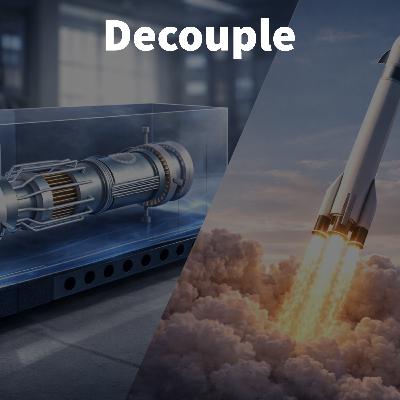
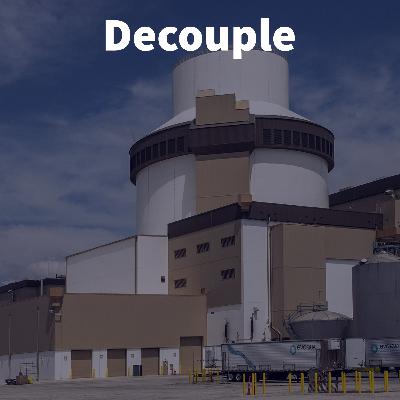


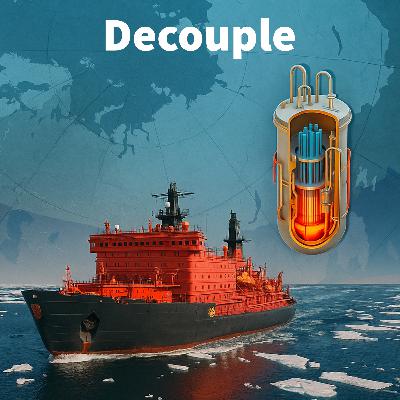
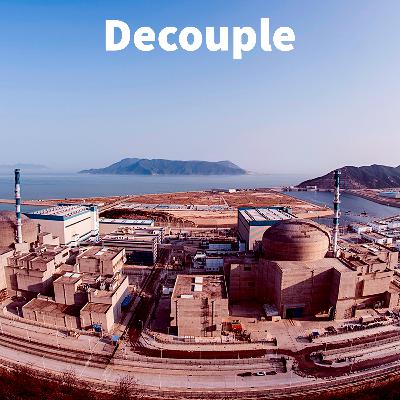

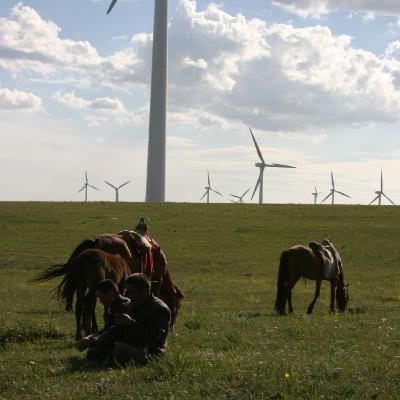
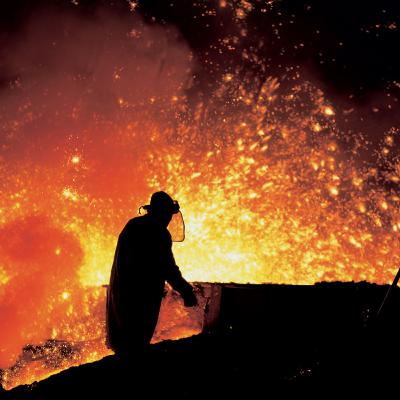

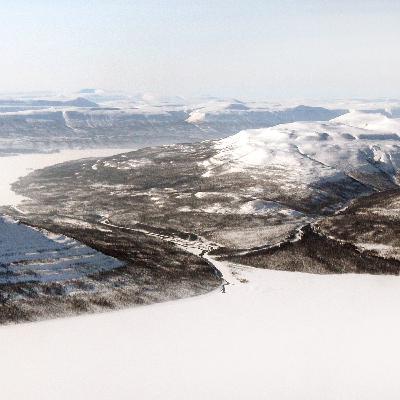
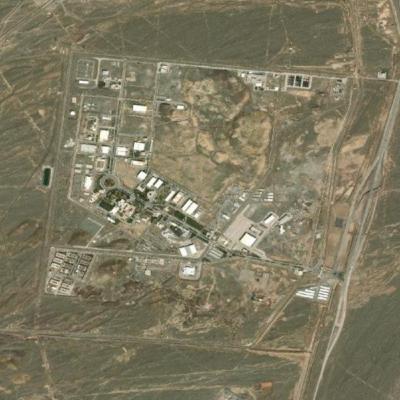
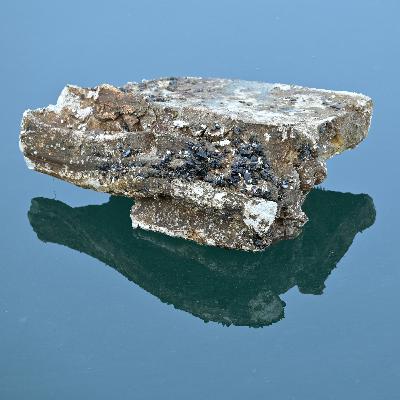
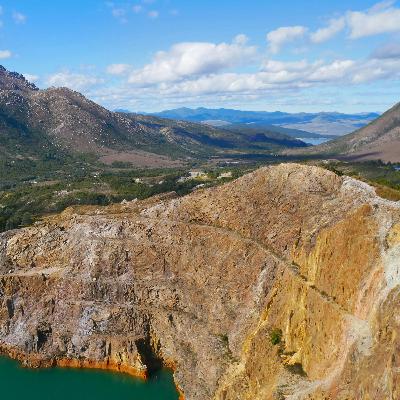
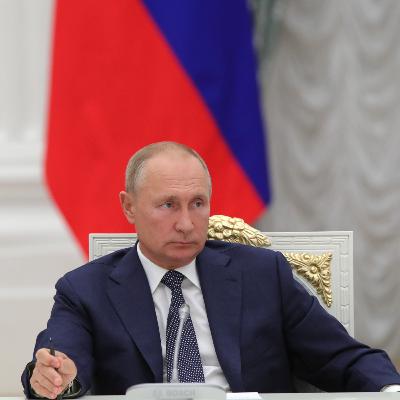
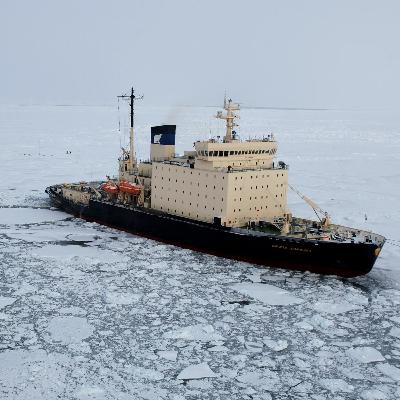



i love this guy
Very good cast even if combative I think there's a ton of good and bad signals to draw from this. A ton of the commentary from Jigar seems like a defense of previous policy and US primacy instead of well thought out policy or an honest assessment of things but the fact that he seems to want to at least seem pro-nuclear suggests a substantial shift in attitudes in the US. I do look forward to seeing it posted on YouTube though as that's a better place for discussion.
Another fantastic episode.
You are both inspiring. Thank you! And greetings from Slovenia.
Good podcast, would be so much better if the host learned not to say "Umm" all the time
Investor in Nebraska ? Warren Buffett 😂
Bwahaha Mr. Hausfather talks about others cherry picking information all the while speaking only of Trump burning coal and not that fact that China is building more coal fire plants as well as Germany having to put their coal fire plants back into service because they're shutting down their nuclear power and wind and solar is a pipe dream. He constantly blames Trump as if Trump is the sole reason for global warming and is NEVER challenged by the host. Kinda disappointing really...